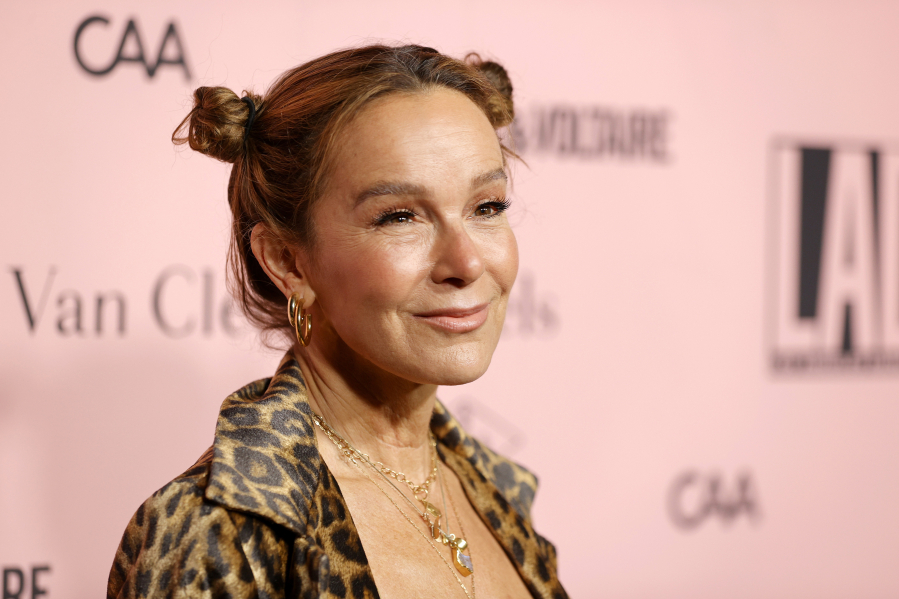Jennifer Grey became a household name in 1987 with the release of “Dirty Dancing,” playing a character named Baby who does some important growing up during a summer vacation to the Catskills. “Nobody puts Baby in a corner” is the famous line from the movie, so it’s fitting that the title of Grey’s new memoir is a play on that. It’s called “Out of the Corner.”
In writing the book, Grey said she became something of a detective unraveling a mystery. “I had very sketchy childhood memories and I thought, how am I going to write a memoir if I have no memories before ninth grade or whatever? So I started with what I did remember. There are snapshots. There are sensorial memories — of a sense, a texture of a dress — and as I started to write, it started to open up for me. And because it was a slow process, I think it allowed my unconscious to reveal more to me.”
Grey’s career on screen kicked off in the 1980s with “Ferris Bueller’s Day Off” among others, and her credits in the years since include roles on “Grey’s Anatomy,” “The Conners” and various characters on “Phineas and Ferb.” She’s also set to star in a forthcoming “Dirty Dancing” sequel.
She also had a career on stage, from which she ultimately walked away. She tells that story for My Worst Moment. “I did not write it in my book, because there was already too much hard stuff and I thought, nobody can take this much darkness,” she said with a rueful laugh.



